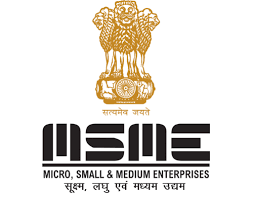MSME stands for Micro, Small, and Medium Enterprises, which are businesses classified based on their investment in plant and machinery (for manufacturing) or equipment (for services). These enterprises play a critical role in the economic development of a country by fostering innovation, generating employment, and contributing to industrial growth. In India, MSMEs are recognized under the Micro, Small, and Medium Enterprises Development (MSMED) Act, 2006.
These businesses typically operate on a smaller scale than large corporations but have a substantial impact on the national economy. MSMEs also play a pivotal role in promoting inclusive growth by enabling entrepreneurs to start businesses and create jobs across diverse sectors.
The classification of MSMEs is based on their investment in plant and machinery or equipment and annual turnover. Here's a breakdown of the classification:

To register as an MSME in India, you will need to submit various documents to the Ministry of MSME or through the Udyam Registration Portal.
To qualify as an MSME and avail of its benefits, the enterprise must meet the following criteria:
MSMEs enjoy various government incentives, subsidies, and support systems. The key benefits include: